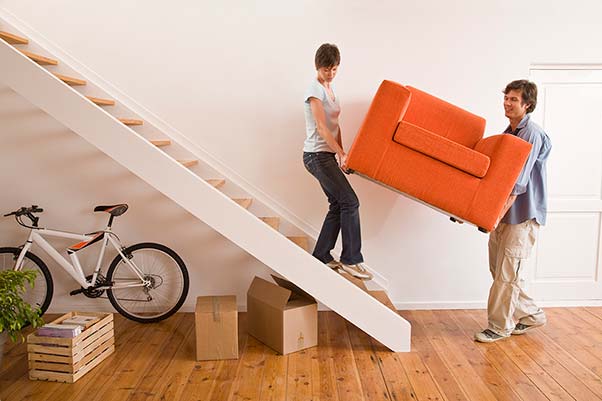Caring for aging parents or in-laws in your home? You might be surprised at how different it is living with your parents the second time around. Instead of your parents taking you to soccer practice and enforcing curfew, you may find yourself running Mom or Dad to and from doctor’s appointments and dodging judgments about how you do things as an adult. If you are lucky, though, you’ll receive a little help around the house, or at the very least, some truly precious quality time that you otherwise wouldn’t have.
Tips for Moving in Your Parents
The transition period when moving parents in with you can be a bit rough if you aren’t prepared for the change. Follow these tips to make the transition as smooth as possible:
1. Establish Ground Rules.
Even if they are your parents (or in-laws), it’s still your house. You kindly opened your home to make your parents’ lives easier, so in most cases, you would imagine the new residents wouldn’t want to rumple any feathers out of the gate. Letting your expectations be known ahead of time helps to minimize any conflicts and uncomfortable conversations down the road.
2. Discuss Responsibilities.
This goes both ways. You will likely be responsible for helping your elderly parents to get to their activities and appointments. It’s good to know these dates and times in advance, especially so you can coordinate with your existing schedule. Also, whenever you add new people to your household, whether by having children or welcoming in aging parents, you can expect your chore list will grow as well. You’ll have more laundry to do, more dishes to wash, and more food to make and buy—those are just a few examples. It certainly doesn’t hurt to ask if your parents would be willing and able to take on a task or two to help offset your increasing load.
3. Create Areas for Personal Space.
Having long-term house guests, particularly when taking care of aging parents, can be stressful at times. Even if your parent-child relationship couldn’t be better, everyone needs a little personal space now and then. As you think about how to deal with aging parents in your home, be sure to create and make use of a separate sitting area when tension is on the rise.
4. Determine if Remodeling is Necessary.
Some families build a whole apartment suite-style addition to accommodate an aging parent moving into the home. Others make use of a spare bedroom with a nearby bathroom. Beyond the idea of living space, remember that elderly parents may be confined to a wheelchair at times or in need of a walker. Your house may need to have a ramp or other handicap-accessible enhancements when caring for elderly parents. Be sure to have a discussion with your spouse before the move if possible, to cover all of these bases and ensure you are both on the same page.
5. Blend Possessions.
When caring for an elderly parent, storage space is almost sure to become an issue. As you work to condense two homes into one, it’s sure to be a challenge. Just imagine having a lifetime of stuff, and having to decide what you can take and what you have to leave behind forever. Rather than breaking your parents’ hearts over things they’ve treasured and would miss, consider giving them peace of mind without stressing yourself or your marriage over the new clutter. A personal storage unit gives you the best of both worlds, letting your parents hold onto their cherished belongings without having them on full display in all the corners of your home.
As middle-aged adults living with parents, you are sure to hit a few bumps in the road. Not everyone sees eye to eye and life can become overwhelming at times, but with a little planning and commitment to a happy and healthy lifestyle, everyone wins. Taking care of aging parents is one of the most fundamental things that grown children can do to thank their mom and dad—and even mother-in-law and father-in-law— for a lifetime of love and support.










